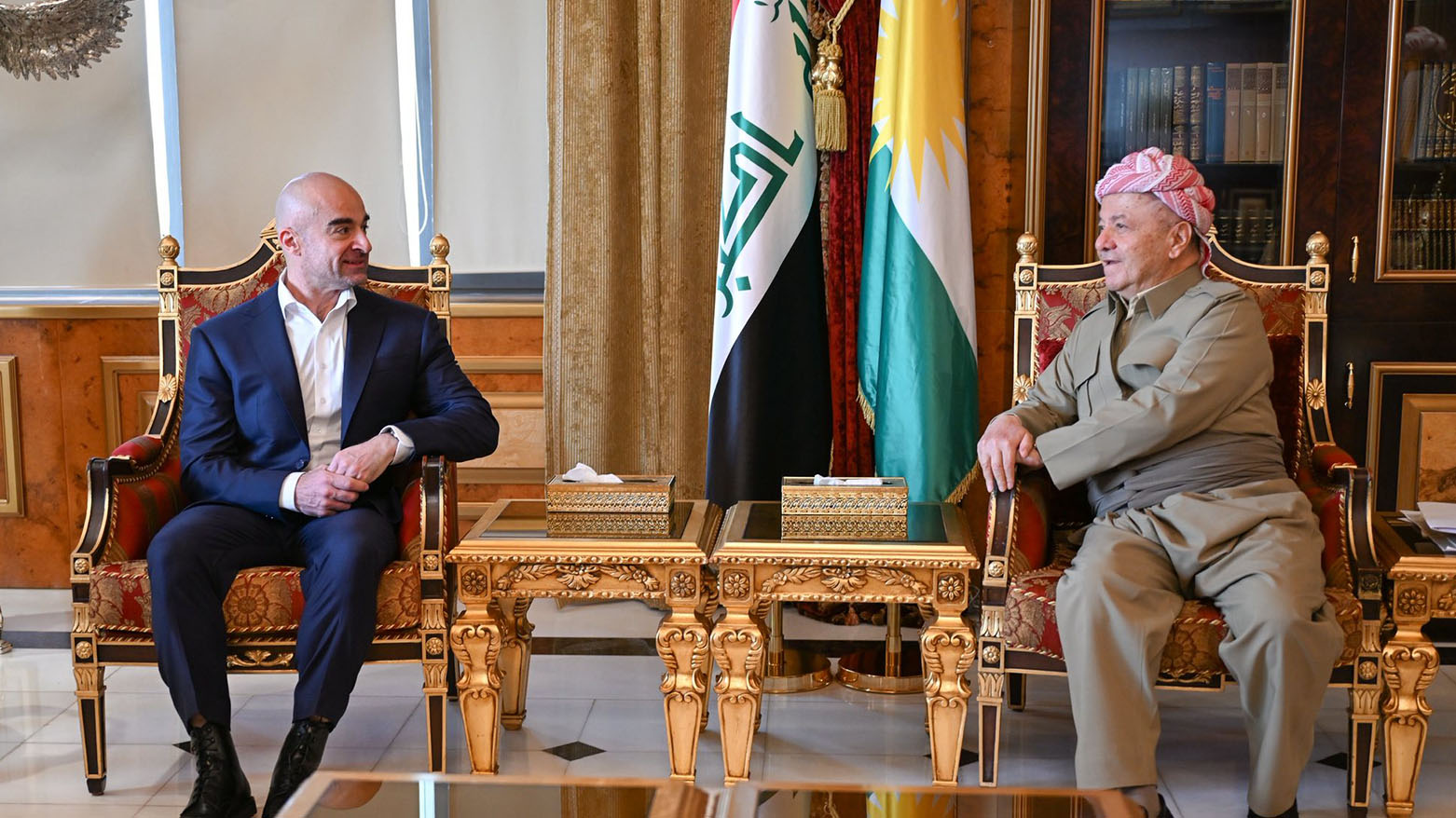President Barzani Meets PUK Leader, Discusses Kurdistan Politics and Cabinet Formation
Talks in Pirmam come as Erbil and Baghdad resume oil exports, and Iraq prepares for November elections.

ERBIL (Kurdistan24) — President Masoud Barzani on Saturday received Patriotic Union of Kurdistan (PUK) leader Bafel Talabani at his office in Pirmam, Erbil.
According to a statement issued by Barzani’s Headquarters, the leaders discussed the political situation in Iraq and the Kurdistan Region, the ongoing political process within the Region, and the formation of the new Kurdistan Regional Government (KRG).
The meeting comes at a critical juncture in Iraq and Kurdistan politics. Just days earlier, Erbil and Baghdad reached a historic agreement to resume Kurdistan Region oil exports, ending a suspension that had lasted over two and a half years and marking a significant economic milestone for the Region.
The central government in Baghdad is also continuing preparations for the upcoming parliamentary elections, scheduled for November 11, 2025, in which both Kurdish ruling parties participate.
Saturday's meeting follows a previous round of talks between President Barzani and Talabani held on July 14 at the Barzani headquarters. After that encounter, the political bureaus of both the KDP and the PUK issued a joint statement emphasizing that their discussions had focused on major developments, challenges, and disputes facing the Kurdistan Region and the federal government, particularly issues related to financial entitlements and the long-delayed salaries of public employees in the Region.
Within the Kurdistan Region, the two ruling parties—the KDP and PUK—have yet to agree on the formation of the 10th regional cabinet following the October 20, 2024 elections. In that vote, the KDP secured 39 seats while the PUK won 23, giving the two parties a clear majority but leaving key government formation issues unresolved.
President Barzani’s meeting with Talabani reflects the ongoing coordination between the two dominant Kurdish parties as they navigate both regional governance challenges and broader national developments, including federal elections, budget negotiations, and strategic infrastructure projects.
The dialogue also underscores the parties’ commitment to addressing economic concerns, particularly public sector salaries, while maintaining political cohesion during a time of historic opportunity for the Kurdistan Region.